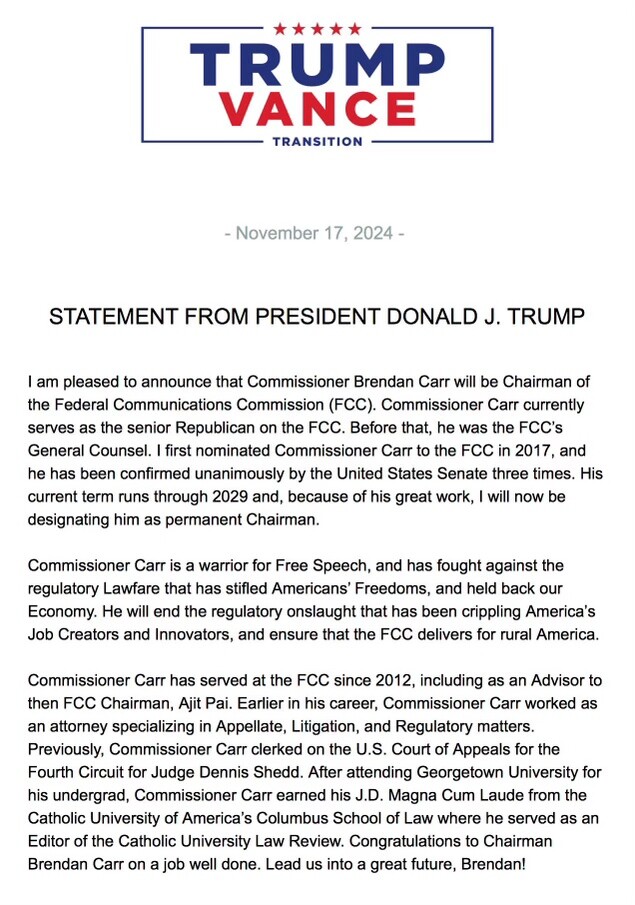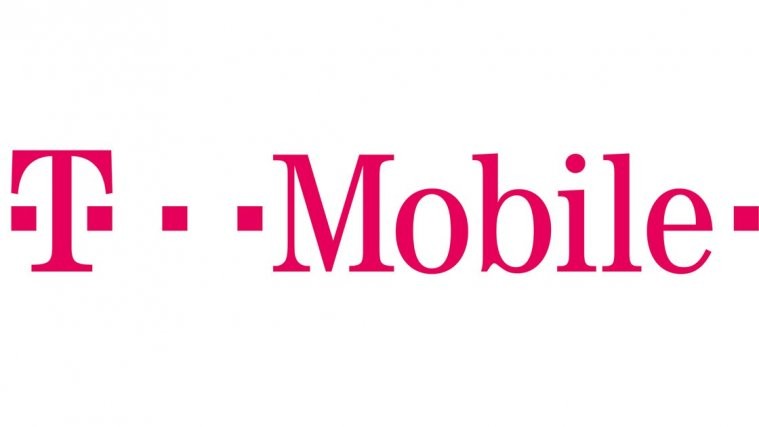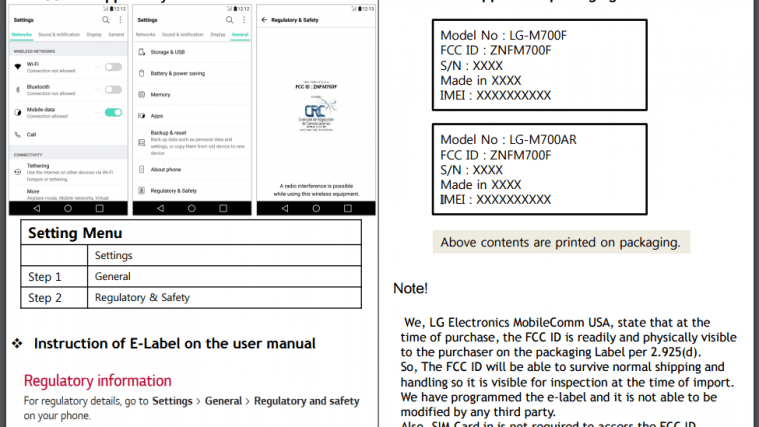What to know
- President-elect Donald Trump has named Brendan Carr, the senior Republican on the Federal Communications Commission, as the new FCC chairman.
- Carr, 45, is a vocal critic of Big Tech and Biden administration’s telecom policies, advocating for free speech and opposing tech censorship.
- The appointment signals a potential shift in FCC policy, with plans to increase oversight of tech companies and change broadcast regulations.
US President Trump has appointed Brendan Carr to lead the Federal Communications Commission when he takes office in January 2025. Carr, who currently serves as the top Republican commissioner at the FCC, brings a track record of challenging Big Tech and advocating for free speech.

As a longtime member of the commission and its former general counsel, Carr has earned bipartisan support, receiving unanimous Senate confirmation three times. Both Trump and President Biden have previously nominated him to the commission.
The incoming FCC chairman has recently aligned himself with Trump’s vision for social media and technology regulation. He contributed to Project 2025, a comprehensive plan for federal agency reform under a potential second Trump administration, though Trump claims no knowledge of the initiative.
In accepting the role, Carr expressed his commitment to reining in Big Tech companies and ensuring broadcasters serve the public interest. He has been particularly vocal about what he sees as censorship by major social media platforms, recently challenging companies like Meta, Google, Apple, and Microsoft over free speech concerns.
Trump praised Carr as a “warrior for Free Speech” who will work to reduce regulatory burdens on American businesses and improve FCC services for rural communities. The appointment suggests a significant shift in FCC policy direction, potentially bringing the traditionally independent agency under closer White House oversight.
The five-person commission currently has a 3-2 Democratic majority, but this will change next year when Trump gains the opportunity to appoint a new member. This transition could facilitate Carr’s agenda to reshape telecommunications regulation and oversight of major tech companies.





